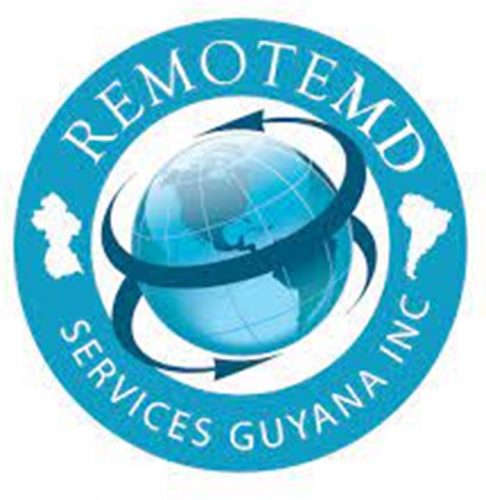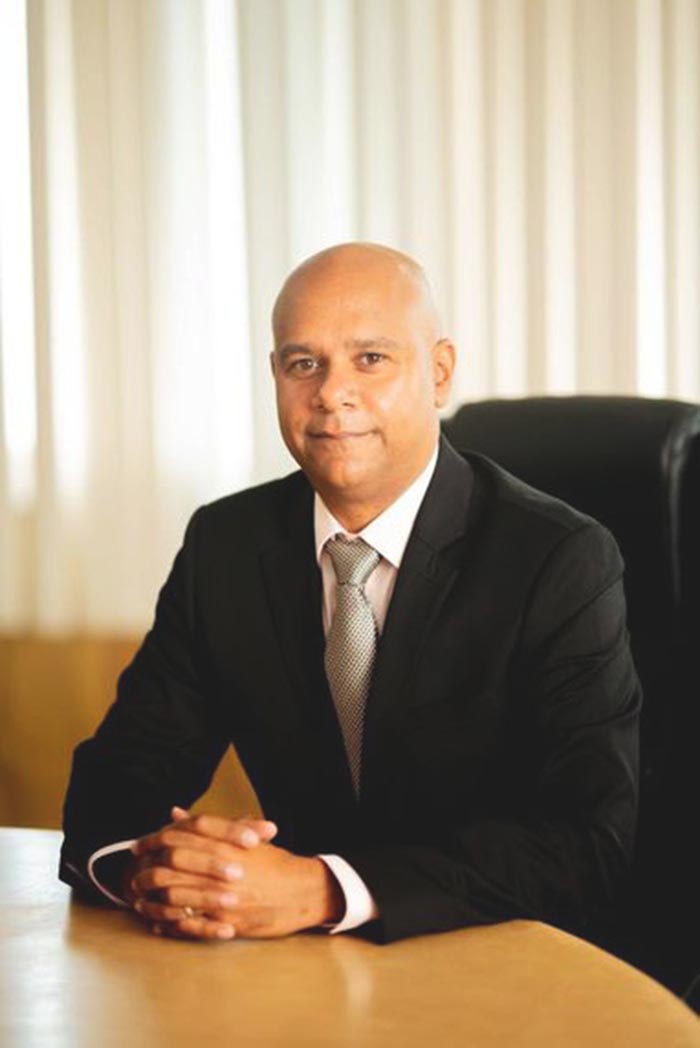In the wake of a Sunday Stabroek report that United States medical services provider, RemoteMD, had filed for Chapter 11 bankruptcy while amassing a debt of over $100M to companies here, the city chamber has warned businesses of the need for due diligence checks before granting credit and says that the lodging of security should be looked at.
“I would advise other companies doing business with companies to limit their credit risk exposure with those companies, especially without any bank guarantee or any kind of security or things like that to hold,” Georgetown Chamber of Commerce and Industry (GCCI) President Timothy Tucker told the Sunday Stabroek in an exclusive interview.

With more foreign companies expected as the oil sector grows, the GCCI President said that the incorporating of limited liability entities should be thoroughly assessed and the Local Content Secretariat should be vigilant in ensuring that locals are not used as third-person fronts for jobs they themselves can undertake.
“In business, there is risk and challenges but there is also the nightmare of companies you are doing work for becoming insolvent or bankrupt. As a business we have to be able to analyze and do our due diligence, and of course our research of companies we are providing services for. This, we have to look at internally when we have companies that are coming and creating limited liability companies, for the purpose of doing business in Guyana”, Tucker stated
“Of course it goes back to the initial statements the chamber has been making, in terms of foreign companies using Guyanese businesses and Guyanese money to fund their local operations without bringing any of their own monies or funding it. This is a troubling fact for the Chamber and we continue to say that companies needing to come in the country- again, this is the reason we have the Local Content Secretariat- we have to ensure that those companies are moving and not just creating trust companies coming into the Guyana market. We have to ensure that they are creating real markets and real partnerships. There must be some kind of stipulation,” he added.
Approval
The Sunday Stabroek reached out to the Local Content Secretariat and Martin Pertab, its head, said that he had prepared a statement on the issue but was awaiting the approval of subject minister, Vickram Bharrat of the Ministry of Natural Resources. Up to press time, according to Pertab, approval had not been received.
Pointing to the case of the Louisiana, United States offshore medical provider, RemoteMD LLC, which filed for bankruptcy in its home country while owing companies here over $100M, Tucker said that the situation was troubling.
“It is troubling and brings us back to a number of things that include the capacity of locals to undertake the same jobs the foreign companies are awarded, and the whole issue of bundling that puts our companies at a disadvantage, “ he said. RemoteMD LLC filed for bankruptcy on the 18th of October last year and has asked the Eastern District of Louisiana Court to grant it Chapter 11 privileges to reorganize and keep its business alive.
But without the existence of similar legislative privileges in Guyana, local creditors are unsure how they will be able to recoup their debts as they are equally unsure what assets RemoteMD LLC possesses in Guyana.
“One medical service provider is owed over $50M, another company nearly double that and there are a number of others…,” a source told the Sunday Stabroek. “As it is, it seems gloomy. We have been trying to contact them for months to discuss settling [their debts] and all to no avail…,” one creditor said. “I am impacted heavily. How this (company), a foreign company with little assets could have racked up all this debt is mind-boggling. Businesses would not have afforded those same privileges to a local company,” a source expressed.
This newspaper has been repeatedly trying to contact RemoteMD CEO, Kathryn Steele, but calls to her mobile number have gone unanswered and there has been no word from the local company based in Kingston. Having exhausted trying on their own to get the company to pay its debts, local companies registered their complaints with the Local Content Secretariat but it is also unclear what the Secretariat can do since bonds or security are not required for foreign companies doing business in the oil and gas sector in Guyana. At the height of the COVID-19 pandemic in 2021, RemoteMD had billed 15 oil services workers US$350 ($70,000) each for a rapid COVID test, far higher than what the local labs were charging and which raised questions again over the expense claims that ExxonMobil and its contractors will likely make as cost oil. An invoice seen by Stabroek News showed that RemoteMD submitted a bill to Gaico Construction on February 19 of 2021 for 15 rapid tests totalling US$5,250 (just over $1 million). When the company was contacted by Stabroek News, it had justified the cost then, even as it explained that by April of that year it was charging between US$65 ($13,000) and US$85($17,000) per test. In its justification of the US$350 charges, RemoteMD had explained then that it outsourced all lab services to local labs. Most of the monies now owed are for the very services that were outsourced. This newspaper was unable to verify if RemoteMD was paid by the oil and gas contractors, and if it was, the question remains why those companies that provided the services were not paid. The labs used for COVID-19 testing in 2021, according to a RemoteMD representative, were Eureka Labs and Sheriff Medical Services. “We pay the labs in Guyana just about US$50 to US$60 for each test. If we have to offshore, it is about US$50 to US$100,” the representative had explained then to Stabroek News, pointing out that while the charges may seem exorbitant when compared to local labs, the company has an agreement that their tests be expedited and thus have to pay for those services.
His explanation raised further troubling questions about why COVID-19 testing required an overseas-based broker like RemoteMD and why ExxonMobil’s contractors did not source local labs for testing. A source told the Stabroek News that one of RemoteMD creditors, Eureka Medical, is preparing to take the company to court over the outstanding debt. “Eureka has begun filing court proceedings to see how the local court can help in recovering…,” the source stated.
Procurement practices
Tucker said that the situation with RemoteMD brings to the fore that Guyana has the capacity to provide certain services that foreign companies are getting contracts for, only to sub-contract to locals. He also pointed to the same issue being faced by local insurance brokers, where insurance services are lumped together with other oil and gas specialty contracts and thus only companies with those expertise benefitting and then subcontracting locals.
“It goes right back again in this instance to our claim: If certain businesses within the local market can provide that service you don’t need oil and gas experience to provide then they should get those contracts. A doctor doesn’t need oil and gas experience to provide health services to someone in the field. This is why it is important that our Local Content Secretariat works and acts in the interest of the businesses that are established in Guyana. Eliminate the third party where you can source directly. The legislation highlights certain areas that you can source locally,” he said.
“How ridiculous is it that you have to get three years’ experience in the oil and gas industry to clear something at the wharf? Who better to know the laws of Guyana for clearance than Guyanese customs brokers? I would say again, in the customs and brokerage industry, there is no need for oil and gas experience. These people have been clearing goods in Guyana all their lives. Likewise, in the medical fraternity, you have doctors who have practiced medicine in multiple jurisdictions…,” he added. He said that laboratory services are provided right here and hospitals are used by foreign envoys and embassy staff and work for those places.
“The US embassy, the British High Commission, the Canadians… all use local services. Why is it different for the oil and gas industry?” he questioned. Tucker said that focus should possibly also be turned on oil and gas operator, ExxonMobil, to see where there is a breakdown in the procurement processes that shortchanges locals.
“We really have to then look, maybe, up the food chain at ExxonMobil’s procurement, their procurement department. Are they really working to the benefit of improving Guyanese? They need to look at it. We have seen, multiple times, Exxon extend a logistics contract that clearly the law unbundles but they continue to extend a bundled contract. Why?” he probed.






